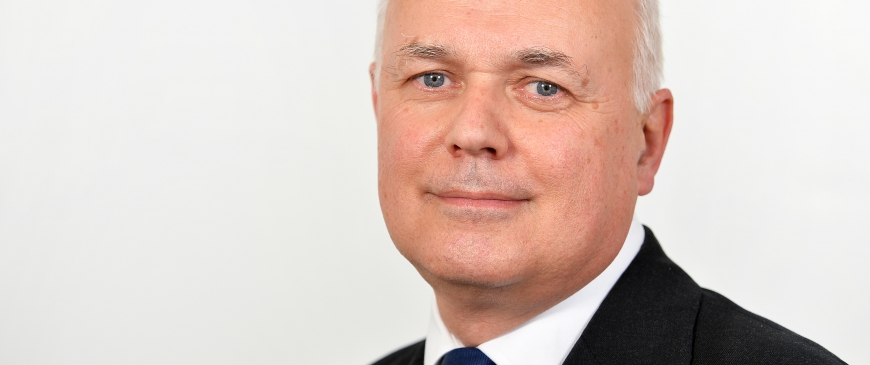
Duncan Smith's free movement fig-leaf
Brexit would sink the pound
Brexiteers, after a difficult start to the campaign, are trying to push the EU debate onto immigration. On the Today programme on Monday, Iain Duncan Smith said: “An awful lot of people come here and compete hugely with lots of British people who are in job centres… and they drop down the salary levels; they damage the poorest people in society, because they’ve seen their incomes fall.” When he was work and pensions secretary, Duncan Smith had some of the best labour market wonks working for him. As a politician not known for cautious empiricism, perhaps he didn’t ask them whether this commonplace view was right. Had he done so, they would have said: “Well, minister, you’re not wrong exactly, but in the grand scheme of things, this isn’t much to get worked up about.”
The economics of immigration is a bitterly contested subject - not so much among economists themselves, who exhibit a fair degree of consensus on the matter - but among politicians and the ecology of journalists, think tanks and pressure groups that swim alongside them. And, of course, it is central to the Brexit question, which was always going to boil down to: are you willing to be poorer to have fewer migrants from Central and Eastern Europe around?
For the Centre for European Reform’s report on the economics of Brexit, I took all the reputable studies that had been conducted on the effects of immigration on UK wages and employment. With some simple digging about in the statistics, I used their estimates to calculate the impact of immigration from the EU—rather than all immigration—since 2004, when the new member-states joined. The results? Perhaps a very small rise in unemployment in the short term, which goes away as the labour market adjusts and displaced workers are re-employed. There was no clear effect on average wages—but most economists think that immigration from the EU raises average incomes of Britons a little, by bringing in new skills and raising productivity. There is an effect on the wage distribution, with higher-skilled workers gaining and lower-skilled ones losing. But the effect is small. According to the most recent and robust estimate, by Stephen Nickell and Jumana Salaheen for the Bank of England, we can say that immigration from the EU since 2004 led to a cut in wages for low-skilled services workers of 0.8 per cent.
Compare that to the policies that Iain Duncan Smith’s government has enacted since coming to power in 2010. During that period, the government raised VAT, cut tax credits and disability benefits, froze child benefit, raised the tax free allowance, and many other things. According to the Institute for Fiscal Studies, all of these policies combined reduced the incomes of the poorest tenth by 4.1 per cent by 2015. And the further tax and benefit changes the government plans to enact will reduce them further—by 6.5 per cent—between now and 2019. To be fair to him, Duncan Smith resigned over further disability benefit cuts. But if social justice remains the driving force behind his politics, he should turn his guns in another direction.
The usual response, after the wages argument has run its course, is that immigration puts pressure on public services. This isn’t true, at least yet, for the NHS: immigrants from the EU are young, so don’t use the service much. They help us to address the chronic shortage of doctors, nurses and other health service workers. And in education, while there is clearly pressure on school places in London, the children of immigrants have been doing well—so much so that they are responsible for all of the recent improvement in London’s school results, according to Simon Burgess of the University of Bristol. There can be no doubt that constrained housing supply, a growing population and low interest rates are together pushing up house prices. But immigration from the EU is only one reason for population growth; immigrants from the EU pay more into the public purse than they take out; only 7 per cent of the UK is built on; and the government’s cost of borrowing is at record lows. Changes to domestic policy, not Brexit, would solve the congestion problems in housing and infrastructure. And migrants will help to pay for baby-boomers’ healthcare and pensions, lessening the need for tax rises and spending cuts to balance the books in the long term.
So why, given that the consensus among people who know what they’re talking about is that immigration is, on balance, beneficial economically, do politicians keep banging on about falling wages? Couching the case against EU free movement in economic terms provides a fig-leaf for the underlying cause of unease: that immigration is changing British society and culture. An honest discussion would focus on that question, not the economics—but Brexiteers know that “cultural concerns” sit next door to nativism and xenophobia, and highlighting those issues would all but guarantee that they lost the referendum.
John Springford is a senior research fellow at the Centre for European Reform.
